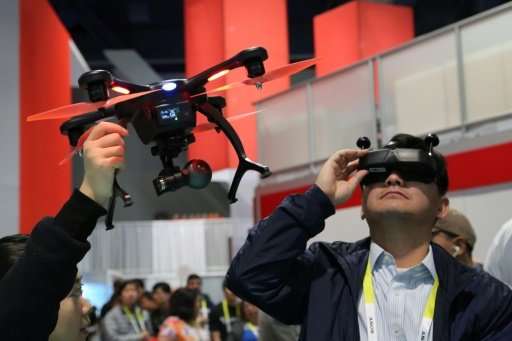Future of news: bracing for next wave of technology

If you think technology has shaken up the news media—just wait, you haven't seen anything yet.
The next wave of disruption is likely to be even more profound, according to a study presented Saturday to the Online News Association annual meeting in Washington.
News organizations which have struggled in the past two decades as readers moved online and to mobile devices will soon need to adapt to artificial intelligence, augmented reality and automated journalism and find ways to connect beyond the smartphone, the report said.
"Voice interface" will be one of the big challenges for media organizations, said the report by Amy Webb, a New York University Stern School of Business faculty member and Founder of the Future Today Institute.
The institute estimates that 50 percent of interactions that consumers have with computers will be using their voices by 2023.
"Once we are speaking to our machines about the news, what does the business model for journalism look like?" the report said.
"News organizations are ceding this future ecosystem to outside corporations. They will lose the ability to provide anything but content."
Webb writes that most news organizations have done little experimentation with chat apps and voice skills on Amazon's Alexa and Google Home, the likes of which may be key parts of the future news ecosystem.
Because of this, she argues that artificial intelligence or AI is posing "an existential threat to the future of journalism."

"Journalism itself is not actively participating in building the AI ecosystem," she wrote.
One big problem facing media organizations is that new technologies impacting the future of news such as AI are out of their control, and instead is in the hands of tech firms like Google, Amazon, Tencent, Baidu, IBM, Facebook, Apple and Microsoft, according to Webb.
"News organizations are customers, not significant contributors," the report said.
"We recommend cross-industry collaboration and experimentation on a grand scale, and we encourage leaders within journalism to organize quickly."
Drones, virtual reality
The study identified 75 technology trends likely to have an impact on journalism in the coming years, including drones, wearables, blockchain, 360-degree video, virtual reality and real-time fact-checking.
Webb's study said some changes in technology will start having an impact on the media in the very near future, within 24 to 36 months.
"In 2018, a critical mass of emerging technologies will converge, finding advanced uses beyond initial testing and applied research," the report said.
Some of these new technologies—the ability to interpret visual data, develop algorithms to write or interpret news, and collect and analyze increasing amounts of data— will allow journalists "to do richer, deeper reporting, fact checking and editing," the report said.
These technologies "will give journalists superpowers, if they have the training to use these emerging systems and tools," Webb writes.
© 2017 AFP





















